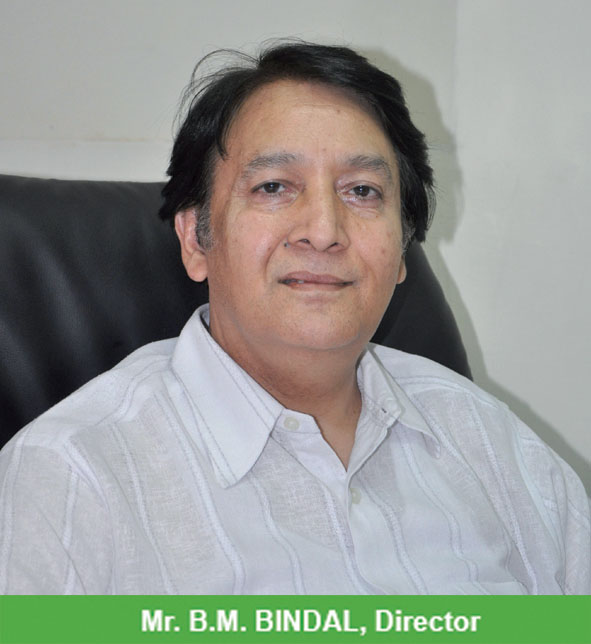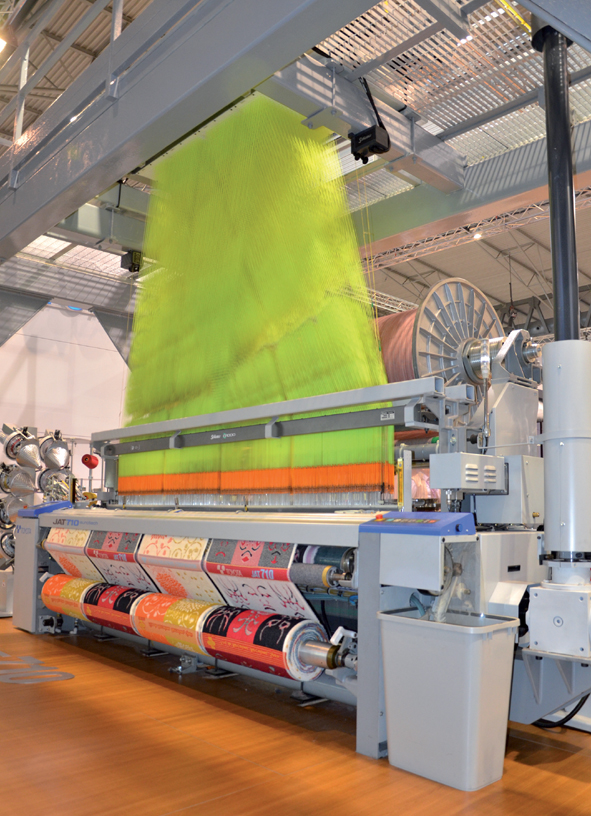By K. Gopalakrishnan
The backbone of India’s textile industry is undoubtedly the agents who represent domestic and global machinery and component manufacturers. Agents have been the face of machinery and component manufacturers for many decades now.
 Although some machinery manufacturers have established their direct presence, agents continue to play a very important role and have been responsible for the success of many global brands in India. Many of the agents have established strong relationships with their customers through their strong sales and service support and there is so much understanding between the two parties. Machinery manufacturers prefer to work with agents so far as the agent gives the right attention to the brand.
Although some machinery manufacturers have established their direct presence, agents continue to play a very important role and have been responsible for the success of many global brands in India. Many of the agents have established strong relationships with their customers through their strong sales and service support and there is so much understanding between the two parties. Machinery manufacturers prefer to work with agents so far as the agent gives the right attention to the brand.
As part of our series on successful textile machinery agents in India, we have featured Mr. B.M. Bindal and Mr. Anand Agarwalla, Directors of Matex Ltd.
Matex is a renowned name in the marketing of high end textile machines. The company has been in the business of selling textile machines for more than 30 years and has obtained an envious position by sheer grit and the philosophy of putting customers first.
Headquartered in Delhi with branch office in Hyderabad, and representatives in Coimbatore, Mumbai and Bhilwara. Matex represents a large number of European, Japanese, American and Korean machinery manufacturers to serve a wide variety of customers throughout India. The main categories include machine for spinning, preparatory, weaving, processing of yarn, dyeing and finishing, RF dryers, etc.
 Matex has also been dealing in different projects, technical know-how for executing complete projects. It caters to a large variety of projects like total solutions for technical textiles, synthetic fibres, yarns, denim, corduroy and integrated textile projects, etc.
Matex has also been dealing in different projects, technical know-how for executing complete projects. It caters to a large variety of projects like total solutions for technical textiles, synthetic fibres, yarns, denim, corduroy and integrated textile projects, etc.
Mr. Bindal says: “Started in 1980, we initially represented many European machinery manufacturers. Later we had the opportunity to work with the Japanese machinery manufacturers in 1984-85. We started selling Nissan water jet and air jet looms. Nissan subsequently was taken over by Toyota. Since then it’s been a long association with Toyota. We sell the airjet machines of Toyota to customers in the North and Western region. We have a very successful relationship with Toyota”.
In the weaving segment Toyota is undoubtedly the market leader in the Indian textile industry. Matex has been marketing Toyota looms in India since many years and has played an important role in the successful journey. Matex has been part of many major successful projects for Toyota in India, including the Trident project which is one of the largest terry towel installations of airjet looms in the world. Another achievement has been the supply of nearly 1,000 airjet looms to Alok Industries.
Apart from Toyota, Matex represents Cubotex of Italy for yarn dyeing machines, Stalam for radio frequency dryers, Jaume Anglada Vinas S.A. of Spain for towel finishing lines, Gaston Systems Inc. of the US for the finishing and foam dyeing technology, IL Sung of Korea for stenters. It has sold more than 55 IL Sung stenters to major textile companies in India.
Gaston Systems
There is great future for the products offered by Gaston Systems that has developed foam dyeing technology. This is a green technology wherein you can dye a fabric with water as low as 30 per cent of the fabric weight without any effluent discharge.
The first machines will be shipped to a customer in India from Gaston Systems with foam dyeing technology for Indigo. This will be the first of its kind in South Asia. Similar machines are working in the Americas, Turkey and Spain. The target is to promote this machine to customers who are doing exhaust dyeing with jiggers and other technologies where the liquor ratios are very high. Extreme discharge of effluents takes p lace.
lace.
The main focus is on markets like Tirupur where they are looking for technology or machines that conform to pollution and zero discharge norms, which are highly expensive. Efforts are on to adapt this technology for knitted fabrics. As far as woven fabrics are concerned, the company is extremely confident that it can deliver the right solution for dyeing of reactives, sulphurs and indigo.
The other area of application of the foam technology is finishing of textiles wherein you can apply virtually any type of normal chemical applications which could be impregnation, over dyeing, coating…can be done with this machine with the lowest wet pick up ratio. You save enormous amount on energy costs and significant reduction in effluent discharge. There is no effluent discharge in this technology, says Mr. Bindal.
Asked about the company’s long-standing relationship with its principals, Mr. Bindal says: “If you look after your customers well, understand their needs, provide the right service support to their operations. Do an honest job for your principals, the bonding stays forever”.
“It’s been 30 years of association along the ups and downs of the Indian textile industry. We have done our best and will continue to be a part of this industry. We feel that the textile industry needs to be modernized to a great extent and there will be a very big requirement for equipment in the future. Imports will continue especially for weaving machines and high quality dyeing and finishing machines”, he adds.
Technical textiles
Technical textiles is a segment which Matex is building expertise on. Mr. Bindal says: “We are looking for new projects as we also deal in machines for technical textiles for geo grid fabric which we have recently supplied to one of the customers. We have supplied a plant for manufacturing flex banner material. This is a big market and we expect this to be a growth market for the future. We also see a big market for hygiene products to be manufactured in India. We have expanded from core textiles to other related segments as we see a lot of future growth opportunity in these segments”.
The company recently executed a complete project in Himachal Pradesh for one of its customers. The project is for high twisted cotton bandages which are both woven and from narrow looms. There is a complete bleaching plant for cotton fibre and there is a downstream production for cotton balls, production of face pads, cotton rolls and other products for the hygiene industry.
Matex has supplied the entire technology on a turnkey basis. Machines for this project have been sourced from Korea, Taiwan and Germany.
The success of any company, be it the manufacturer or agent, depends purely on the after-sales service offered. It’s the service which creates a sense of trust and confidence in the mind of the customer. Matex as a company has been very focused on that. “We have a team of service engineers in all major locations across India. We take complete responsibility for the after sales service. Our team is there right from the erection to commissioning and the after sales service. This has been one of the strengths for us to continue in the business for so many years. We take care of the requirement of all our customers so that they can just focus on the business and leave the rest to us”, Mr. Bindal adds.
The biggest achievement in the last 30 years has been the success of Toyota air jet machines which has helped the company grow to this level, and the biggest breakthrough for the future from new technologies is Gaston Systems as increasingly there will be a shortage of water and this will be the technology for the future. The company endeavor is to introduce new, efficient, green technologies and promote new projects which are not traditionally part of the textile industry and that which will help generate better margins for customers. It always tries to add products which complement its existing range.
Mr. Bindal feels that the only issue which is a matter of concern is the missing of one generation in the textile industry. The current generation of executives who are in the 30 to 45 age group are mostly in IT or in other streams of manufacturing. Textile was probably not a preferred industry for professionals in the last couple of decades and in the process we are now facing a huge dearth of technically qualified manpower. The future availability of qualified people is a matter of concern for the textile industry.